Nurses Narratives: Elfreda Ethel May Doepke
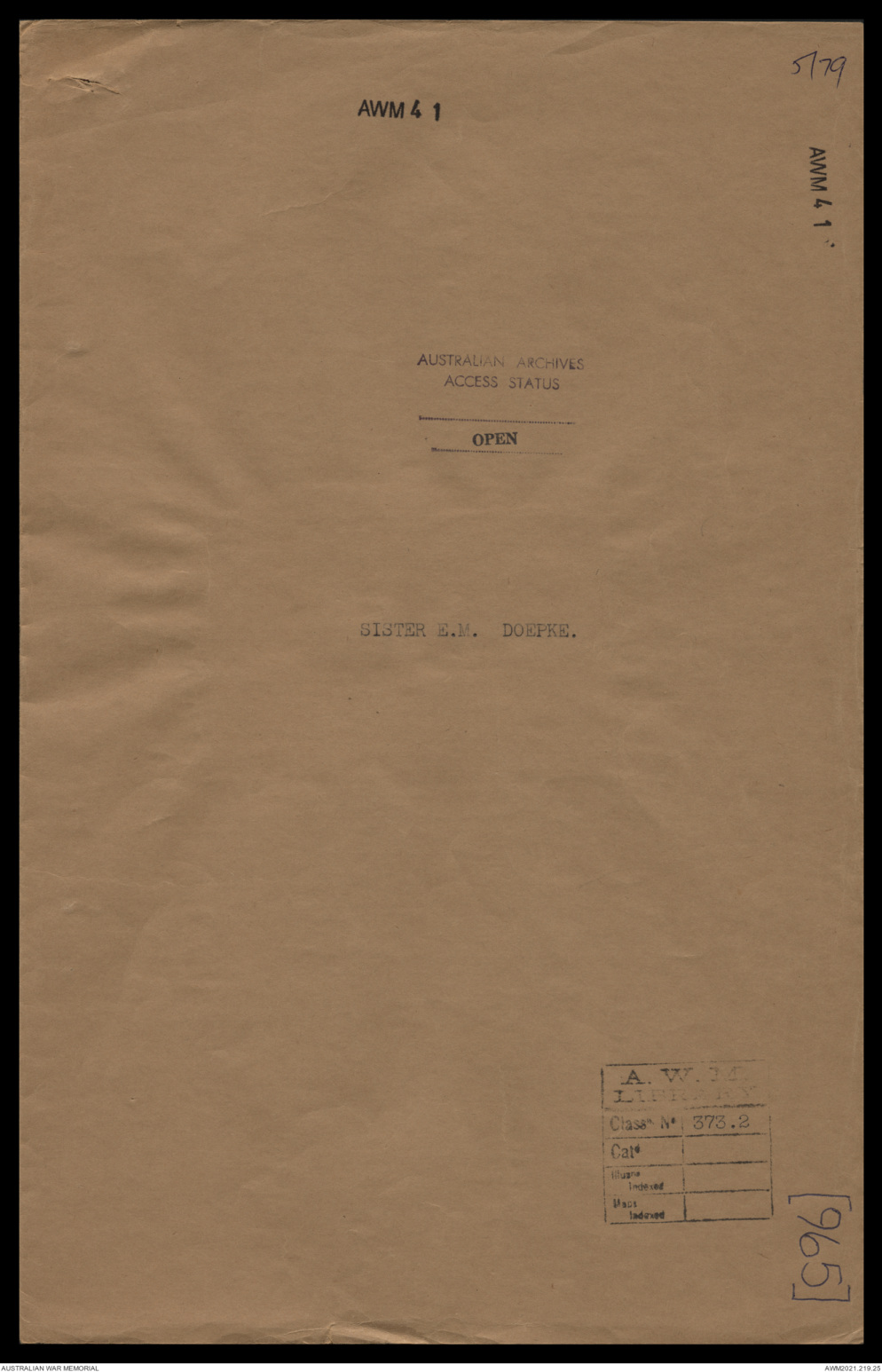
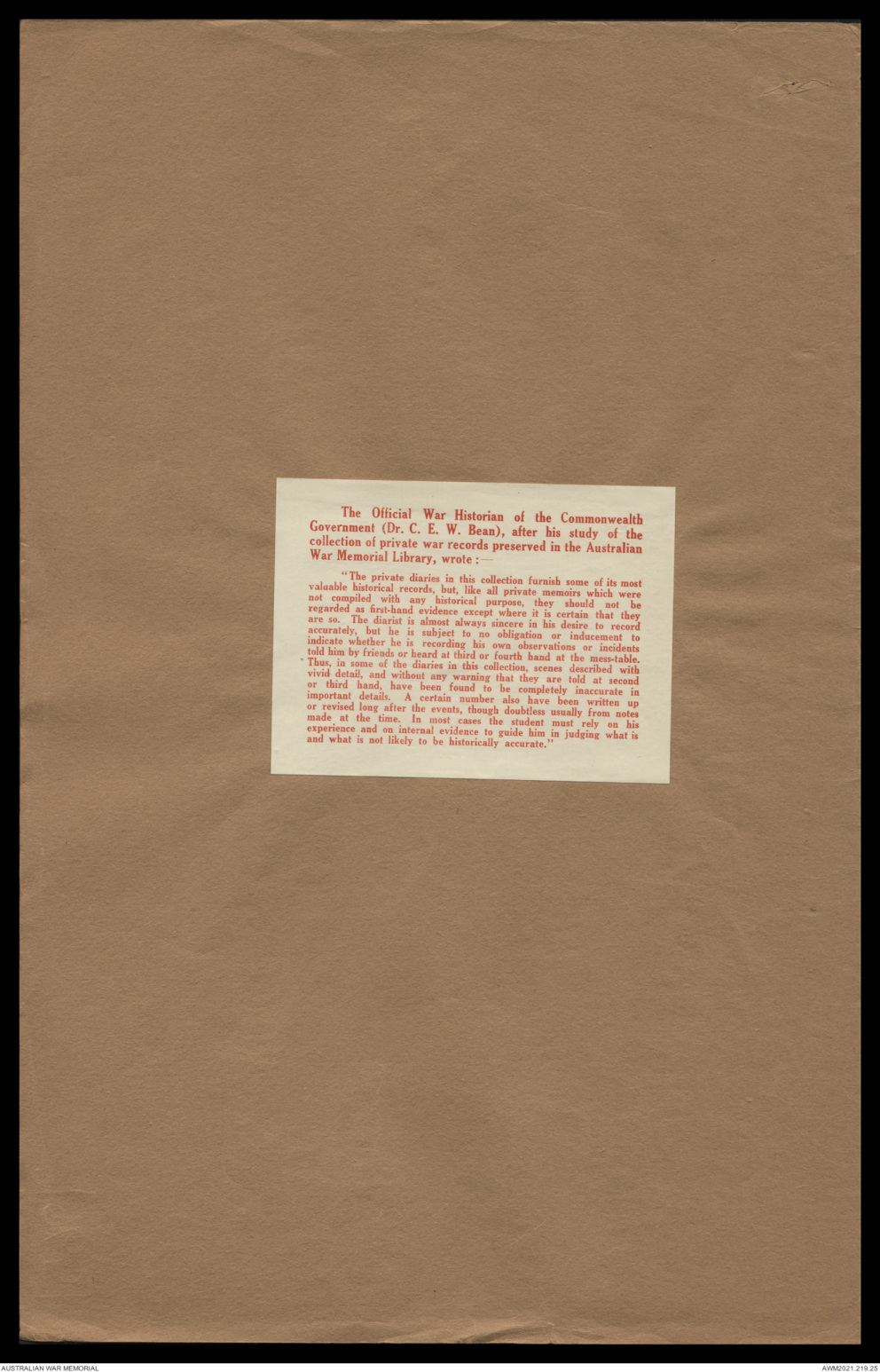
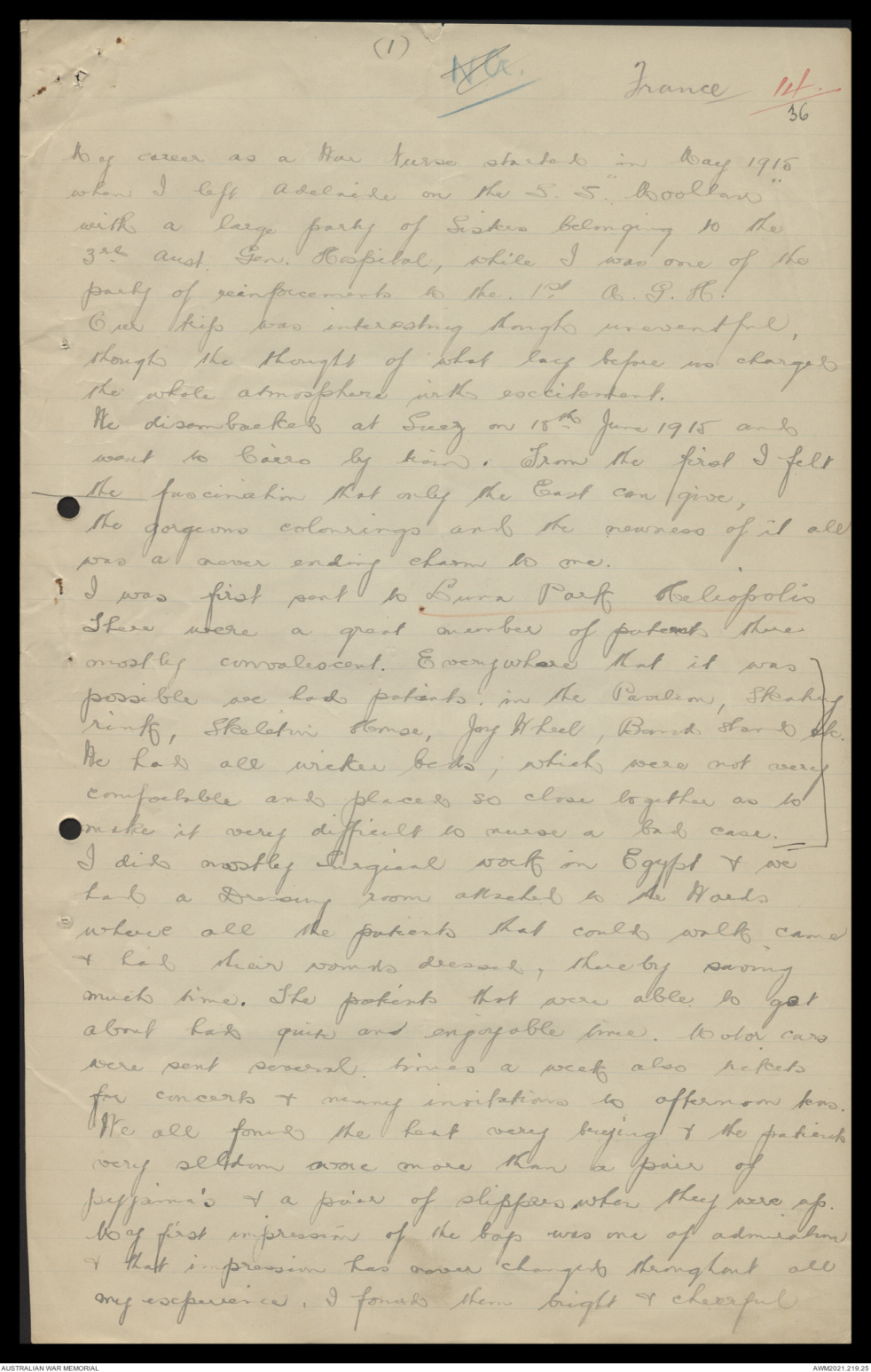
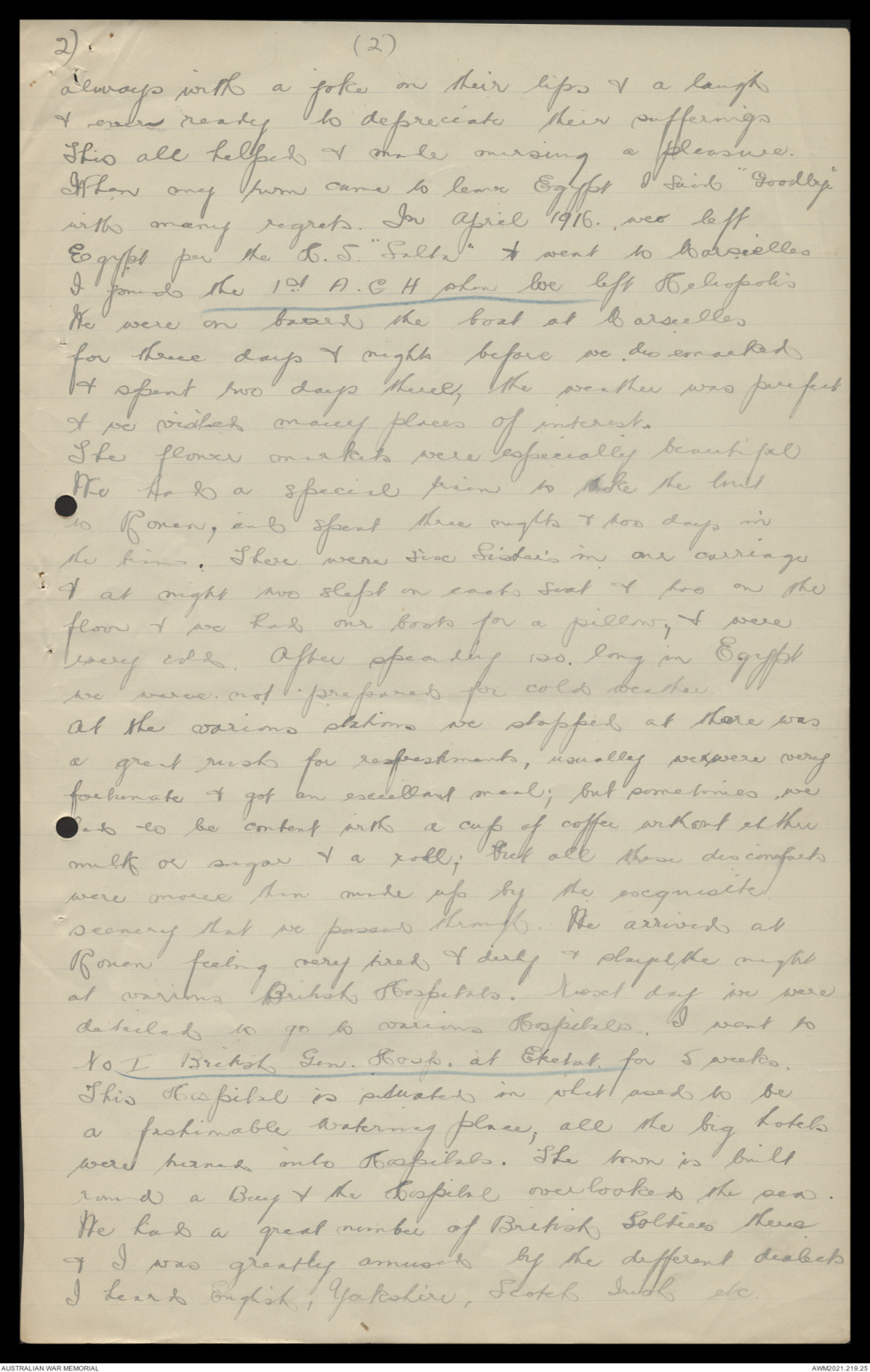
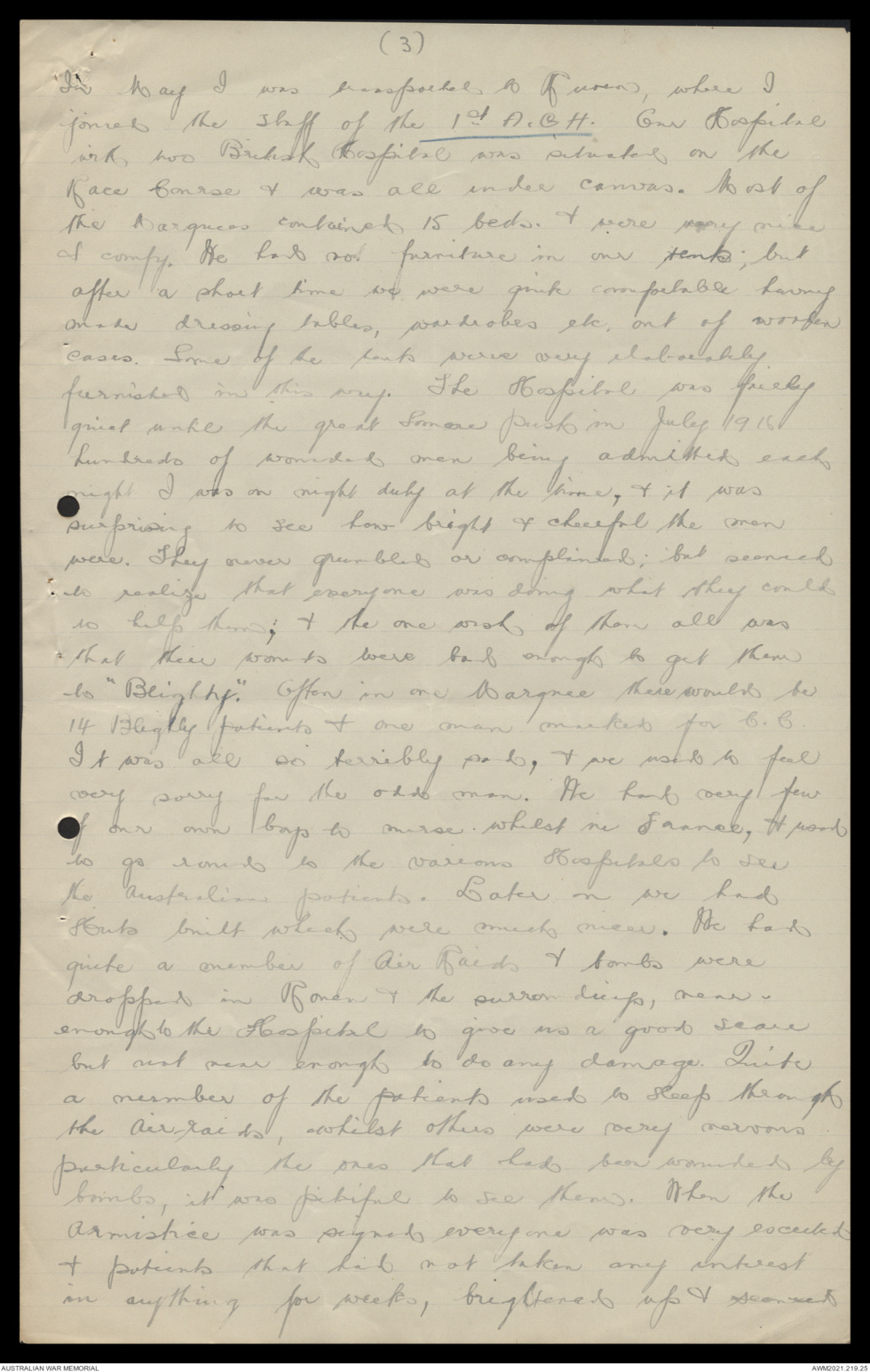
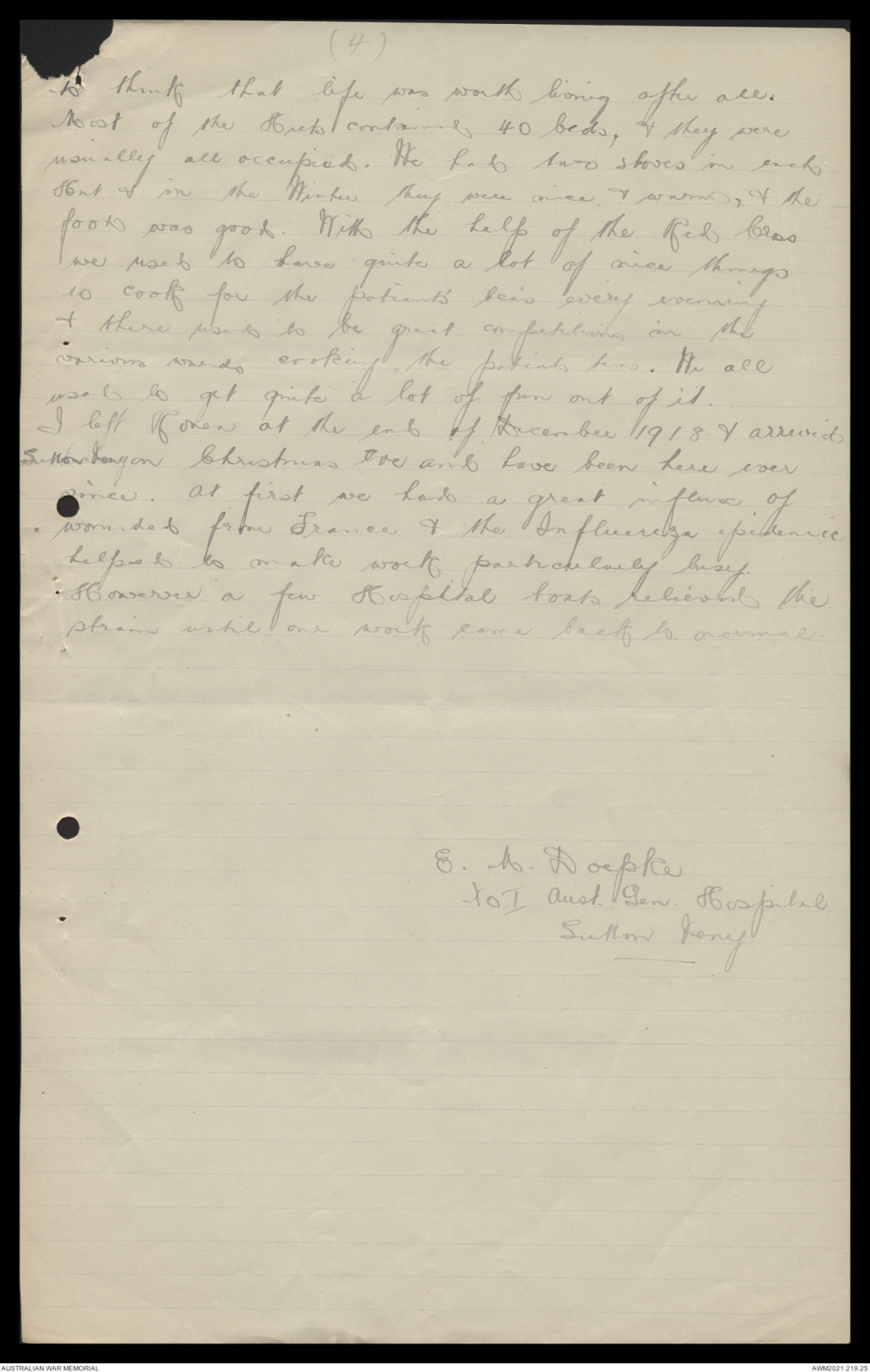
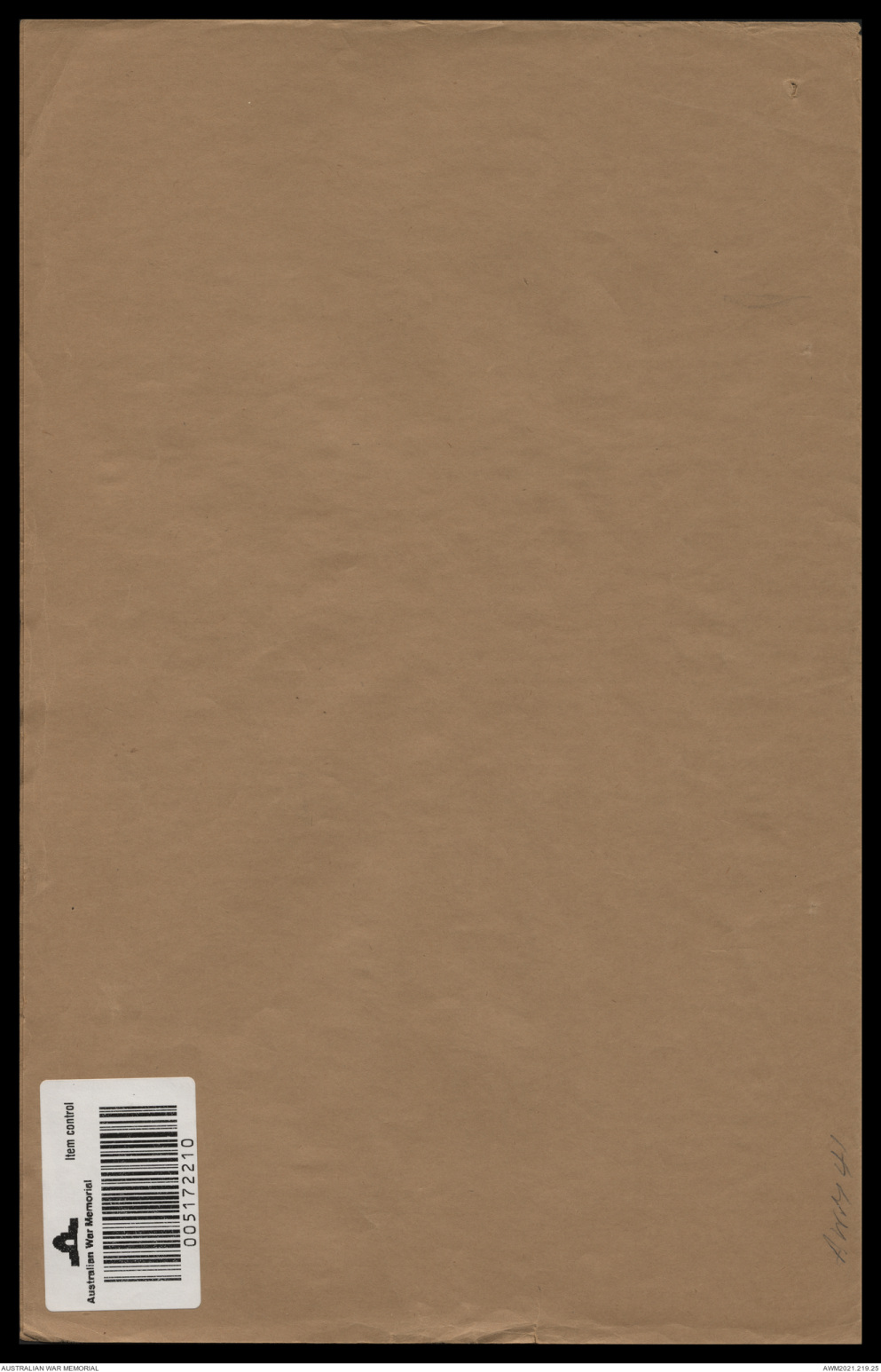
5/79
AWM 4 1
AWM 4 1
AUSTRALIAN ARCHIVES
ACCESS STATUS
OPEN
SISTER E.M. DOEPKE
A.W.M.
LIBRARY
Class 373.2
Cat
[965]
The Official War Historian of the Commonwealth
Government (Dr. C. E. W. Bean), after his study of the
collection of private war records preserved in the Australian
War Memorial Library, wrote:-
"The private diaries in this collection furnish some of its most
valuable historical records, but, like all private memoirs which were
not compiled with any historical purpose, they should not be
regarded as first-hand evidence except where it is certain that they
are so. The diarist is almost always sincere in his desire to record
accurately, but he is subject to no obligation or inducement to
indicate whether he is recording his own observations or incidents
told him by friends or heard at third or fourth hand at the mess-table.
Thus, in some of the diaries in this collection, scenes described with
vivid detail, and without any warning that they are told at second
or third hand, have been found to be completely inaccurate in
important details. A certain number also have been written up
or revised long after the events, though doubtless usually from notes
made at the time. In most cases the student must rely on his
experience and on internal evidence to guide him in judging what is
and what is not likely to be historically accurate".
(1) N.G. France 14/36
My career as a War nurse started in May 1915
when I left Adelaide on the S.S. "Mooltan"
with a large party of Sisters belonging to the
3rd Aust. Gen. Hospital, while I was one of the
party of reinforcements to the 1st A.G.H.
Our trip was interesting though uneventful,
though the thought of what lay before us charged
the whole atmosphere with excitement.
We disembarked at Suez 18th June 1915 and
went to Cairo by train. From the first I felt
the fascination that only the East can give,
the gorgeous colourings and the newness of it all
was a never ending charm to me.
I was first sent to Luna Park Heliopolis
There were a great number of patients there
mostly convalescent. Everywhere that it was
possible we had patients. in the Pavilion, Skating
rink, Skeleton House, Joy Wheel, Band Stand etc.
We had all wicker beds; which were not very
comfortable and placed so close together as to
make it very difficult to nurse a bad case.
I did mostly surgical work in Egypt & we
had a Dressing room attached to the Wards
where all the patients that could walk came
& had their wounds dressed, thereby saving
much time. The patients that were able to get
about had quite and enjoyable time. Motor cars
were sent several times a week also tickets
for concerts & many invitations to afternoon teas.
We all found the heat very trying & the patients
very seldom wore more than a pair of
pyjama's & a pair of slippers when they were up.
My first impression of the boys was one of admiration
& that impression has never changed throughout all
my experience. I found them bright & cheerful
2 (2)
always with a joke on their lips & a laugh
& ever ready to depreciate their sufferings
This all helped & made nursing a pleasure.
When my turn came to leave Egypt I said "Goodbye"
with many regrets. In April 1916., we left
Egypt per the M.S "Salta" & went to Marseilles
I joined the 1st A.G H when we left Heliopolis
We were on board the boat at Marseilles
for three days & nights before we disembarked
& spent two days there, the weather was perfect
& we visited many places of interest.
The flower markets were especially beautiful
We had a special train to make the haul
to Rouen, and spent three nights & two days in
the train. There were six sisters in our carriage
& at night two slept on each seat & two on the
floor & we had our boots for a pillow, & were
very cold. After spending so. long in Egypt
we were not prepared for cold weather.
At the various stations we stopped at there was
a great rush for refreshments, usually we were very
fortunate & got an excellent meal; but sometimes, we
had to be content with a cup of coffee without either
milk or sugar & a roll; but all these discomforts
were more than made up by the exquisite
scenery that we passed through. We arrived at
Rouen feeling very tired & dirty & stayed the night
at various British Hospitals. Next day we were
detailed to go to various Hospitals. I went to
No 1 British Gen. Hosp. at Etretat for 5 weeks.
This Hospital is situated in what used to be
a fashionable watering place, all the big hotels
were turned into Hospitals. The town is built
round a Bay & the Hospital overlooked the sea.
We had a great number of British Soldiers there
& I was greatly amused by the different dialects
I heard English, Yorkshire, Scotch Irish etc.
(3)
In May I was transported to Rouen, where I
joined the staff of the 1st A.G.H. Our Hospital
with two British Hospital was situated on the
Race Course & was all under canvas. Most of
the Marquees contained 15 beds. & were very nice
& comfy. We had no furniture in our tents; but
after a short time we were quite comfortable having
made dressing tables, wardrobes etc, out of wooden
cases. Some of the tents were very elaborately
furnished in this way. The hospital was fairly
quiet until the great Somme push on July 1916
hundreds of wounded men being admitted each
night. I was on night duty at the time, & it was
surprising to see how bright & cheerful the men
were. They never grumbled or complained; but seemed
to realize that everyone was doing what they could
to help them; & the one wish of them all was
that their wounds were bad enough to get them
to "Blighty". Often in one Marquee there would be
14 Blighty patients & one man marked for C.C.
It was all so terribly sad, & we used to feel
very sorry for the odd man. We had very few
of our own boys to nurse whilst in France, We used
to go round to the various Hospitals to see
the Australian patients. Later on we had
Huts built which were much nicer. We had
quite a number of Air Raids & bombs were
dropped in Rouen & the surroundings, near
enough to the Hospital to give us a good scare
but not near enough to do any damage. Quite
a number of the patients used to sleep through
the Air raids, whilst others were very nervous
particularly the ones that had been wounded by
bombs, it was pitiful to see them. When the
Armistice was signed everyone was very excited
& patients that had not taken any interest
in anything for weeks, brightened up & seemed
(4)
to think that life was worth living after all.
Most of the Huts contained 40 beds, & they were
usually all occupied. We had two stoves in each
Hut & in the winter they were nice & warm, & the
food was good. With the help of the Red Cross
we used to have quite a lot of nice things
to cook for the patients teas every evening
& there used to be great competitions in the
various wards cooking the patients tea. We all
used to get quite a lot of fun out of it.
I left Rouen at the end of December 1918 & arrived
Southampton Christmas Eve and have been here ever
since. At first we had a great influx of
wounded from France & the Influenza epidemic
helped to make work particularly busy.
However a few Hospital boats relieved the
strain until our work came back to normal.
E. H. Doepke
No 1 Aust. Gen. Hospital
Sutton Veny
Item control
Australian War Memorial
005172210
AWM41
 Jacqueline Kennedy
Jacqueline KennedyThis transcription item is now locked to you for editing. To release the lock either Save your changes or Cancel.
This lock will be automatically released after 60 minutes of inactivity.